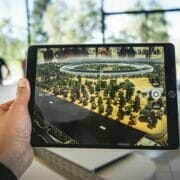7 Tips For Better Android App Development
Android app development remains a promising path for appreneurs and developers seeking new opportunities. And with recent announcements regarding Android 12, Material You, and the latest foldable phones, these are exciting times.
If you are an experienced Android developer or simply sitting by the sidelines, there’s never been a better time to hop on board. Even if you’re an ardent iOS developer that has steered clear of Android, it’s time to give the platform another look. Below, we reveal several handy tips to enhance your Android app development experience in 2022 and beyond!
1. Read The Developer Guides Thoroughly
Set up your Google developer profile, then go through the developer guides. These are well-written and informative, so you should find everything you need to get started. Furthermore, there are training courses for beginner and intermediate developers. And if you plan on studying further, you may want to sign up for the certification and degree programs.
2. Download And Install Android Studio
Android Studio is the official integrated development environment (IDE) for Android development, so you should use it. It’s a powerful suite that’s indispensable for native Android app development. Moreover, it’s a better option than the Eclipse IDE since it’s a more focused tool for Android development. But if you’re developing for multiple platforms, you may want to go with Visual Studio 2019 or 2022.
3. Choose Kotlin Instead Of Java
If you’re starting your Android development journey today, choose Kotlin instead of Java as your programming language. Kotlin is a more modern yet less-verbose language than Java, resulting in a faster and smoother coding experience. The only reason to choose Java is to maintain existing apps written in that language.
4. Learn Material Design
Google has created Material, a design system for creating eye-catching user interfaces (UI) and themes. It consists of component libraries and a states system, allowing designers to build interactive UIs efficiently. Learning the Material design system is worthwhile because it supports Android, Flutter, iOS, and the web.
5. Use A Game Engine For Immersive Experiences
While Android Studio is great, it does have a few shortcomings. For example, it’s not the most effective tool for creating the immersive experiences found in augmented reality (AR) or virtual reality (VR) apps. Instead, it’s better to use Godot, Unity, or Unreal Engine for any visually-rich projects, including mobile games.
6. Profile Your Apps Regularly
Android Studio and most game engines come with a built-in profiler. Use the profiler regularly, as it reveals performance bottlenecks in your apps. It will track CPU and GPU usage, examine threads, detect memory leaks, and even show network traffic. Without profiling, you risk submitting an app that Google Play will likely reject or earn you negative user reviews.
7. Focus On Security
Hackers and malware creators target the Android platform due to its massive user base. That’s why you should seek ways to harden the security of your apps and follow best practices.
Ensure that you’re doing the utmost when storing user data and dealing with sensitive information. Furthermore, keep the number of app permissions to a minimum and cede these when no longer necessary. And use the Nogotofail tool to check for vulnerabilities in your encrypted communications.
The Bottom Line
While Android app development can be fun and rewarding, it can also be frustrating. But the good news is that the development experience on Android has improved tremendously over the years. And if you follow our handy tips, you’re bound to reap the benefits of the platform. Contact NS804 to learn more about building phenomenal Android apps today!













Leave a Reply
Want to join the discussion?Feel free to contribute!